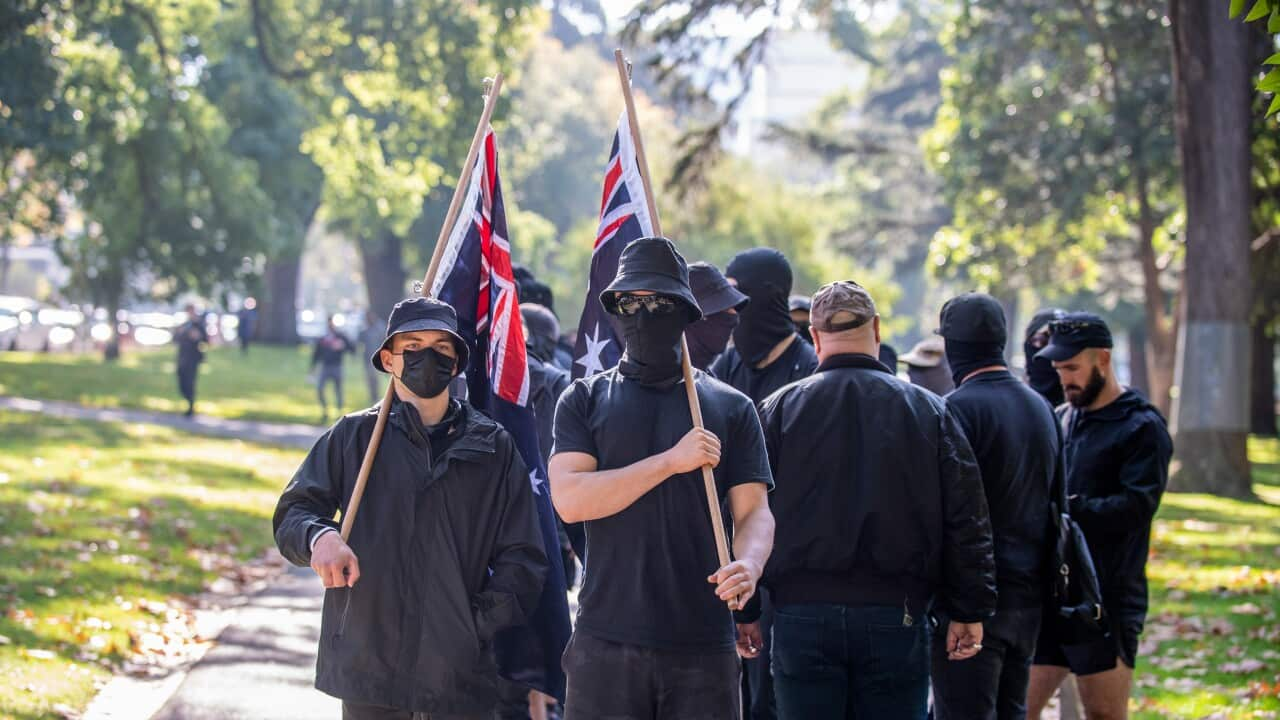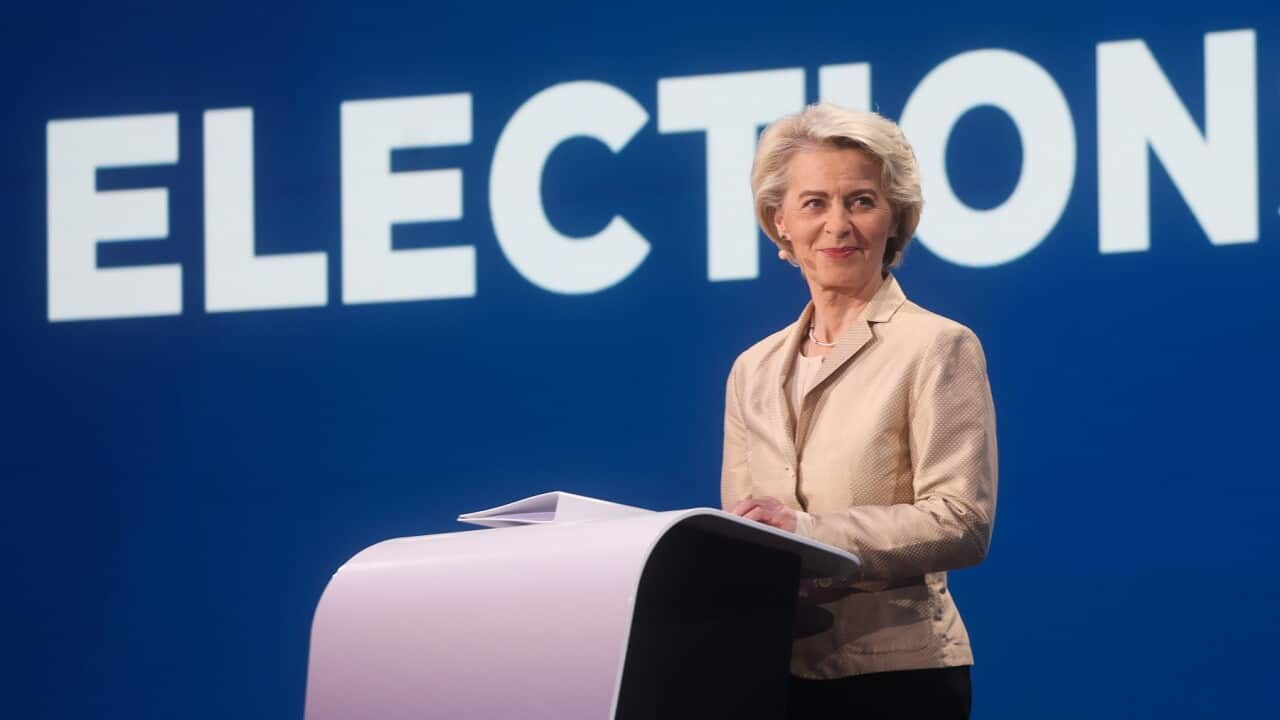A parliamentary inquiry is examining the threat posed by far-right extremist groups in Australia.
Toxic masculinity breeding right-wing group membership, growing antisemitism and the lack of a transparent and unbiased hate crime database are among the issues the inquiry is investigating.
What is far-right extremism?
The term refers to people or organisations who promote ultra-nationalism that often excludes certain groups. This type of extremism can oppose democratic principles and processes and can include groups who consider violence a legitimate way to achieve their goals.
Why is it on the rise?
Professor Michele Grossman is the director of the Centre for Resilient and Inclusive Societies, a Melbourne-based independent think-tank that researches racism and societal division.
Grossman told the inquiry there's evidence people of all ages are becoming more involved with extreme ideologies, which is being enabled by social, operational and financial connections online.
"There is also increasing crossover between far-right extremist movements and other grievance-based ideologies in groups, such as those aligned with conspiracy theories, hateful extremism, extreme misogyny, and the polarising impacts of political mis — and dis-information, creating a post-truth environment of uncertainty, mistrust and resentment," she said.
Lydia Khalil, the co-convener of the Addressing Violent Extremism and Radicalisation to Terrorism Network at Deakin University, told the inquiry the internet and the massive social change it has brought contribute heavily to the problem.
Khalil said disaffection with democracy and global capitalism has increased distrust in democratic governments and institutions — and that Australia is not immune to these trends, despite a high level of welfare and wellbeing.
"Right-wing extremist violence is a key concern. It often has fluid boundaries between hate crime and organised terrorism," Khalil said.
"A lot of right-wing extremist violence manifests as hate crimes in addition to the rare instances of mass casualty attacks targeting the general population."
What does right-wing extremism look like?
Khalil noted that right-wing extremism appears across different ethnicities and communities in Australia, transcending the stereotypes of a "white Anglo male phenomenon".
"The expression of right-wing extremism has been manifested and shown across different aspects of our multicultural society, unfortunately. So for example, that could be the rise in Hindus for extremism, for example, or pro-Putin apologists, or with ultra-Croatian fascist expressions."
Itamar Livne, who spoke to the inquiry on behalf of the Australian Jewish Democratic Society, said the Jewish community in Australia remains a target of right-wing extremism and said the Society is calling on the government to develop a national database and set definitions for hate crimes, instead of relying on not-for-profit organisations or volunteers to provide data.
Livne also said that, along with growing antisemitism, there are also concerns about the presence of right-wing elements within the Jewish community itself.
"As with other organisations, we are concerned about the activity of the activist far right, including its attempt to infiltrate and recruit in settings such as local government, as well as its staging of attention-seeking events. Second, we are concerned about ties between certain sections of the Jewish community and extremist, right-wing Israeli groups and ideologies," he said.
Livne said that the Executive Council of Australian Jewry has spoken out strongly against one such organisation.
"We see in Europe and the US support for such ethno-nationalist extremism on the right. In the US support comes from right-wing Christian Zionists and right-wing Zionists who believe that Palestinians have no place in the holy land," he said.
"We fear that in Australia it's a similar case and local connections with extremist Israeli ethno-nationalist ideologies posing a threat to social cohesion in Australia especially with the heightened tensions over Israel-Palestine."
How are people being recruited?
Gaming platforms are increasingly being used to expose children and young people to radicalised ideologies. In addition to this, communities that espouse toxic masculinity are also playing a role in breeding right-wing group membership.
Associate professor Josh Roose is a researcher from Deakin University and told the inquiry important work is being done to work with boys and men, who are the primary contributors to violent extremism.
"We know that anger is a core driver to violent extremism and so there's a lot of work going on in particular in this country ... around why men are drawn into these groups," he said.
Roose said that his own research has looked at the use of masculinity as a recruitment mechanism and how recruiters play on anger and shame and convince men they can go "from zero to hero" by joining certain groups and "belonging to something bigger than yourself".
Roose said education programs can shift people's focus to speak about how men can contribute to society and how they can show respect for women — he said these are important steps in addressing potential future grievances that may make right-wing groups attractive.
Rana Ebrahimi, the national manager of Multicultural Youth Advocacy Network Australia, said education campaigns also need to work with families, not just young people.
"It's not just education for young people and prevention on the young cohorts, but it also needs to cover the families — especially mothers — because they are in constant relationship with the child as well and they can see the signs of change in behaviour," she said.
The committee conducting the inquiry is due to report its findings by December of this year.












